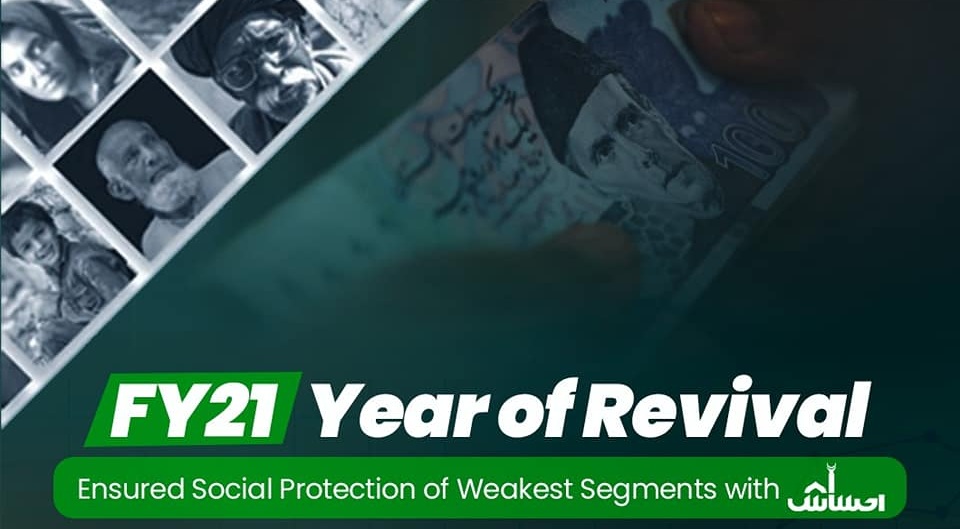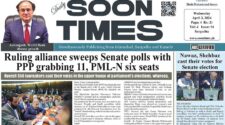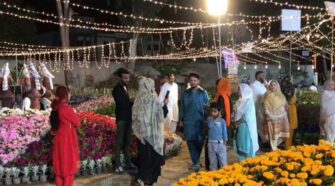On 7 September 1974, Pakistan’s National Assembly enacted a pivotal piece of legislation, the 2nd Amendment to the Constitution of Pakistan. This amendment formally defined the Islamic faith by reaffirming the principle of Khatm-e-Nabawat, or the Finality of Prophethood, and established clear criteria for defining a Muslim. As we approach the Golden Jubilee of this historic event on 7 September 2024, it is important to understand the context and implications of this legislation, particularly in regard to its impact on religious identity and the rights of various communities.
Historical Context and Early Developments:
The principle of Khatm-e-Nabawat, asserting that Prophet Muhammad (PBUH) is the final prophet, is a foundational tenet of Islamic faith. The Qadiani/Mirzai community, founded by Mirza Ghulam Ahmad in the late 19th century, holds beliefs that diverge from this principle, which has led to significant theological and social tensions.
The Early 1950s:
In the early 1950s, the issue of the Qadiani/Mirzai community’s beliefs was becoming a contentious topic, but discussions were often suppressed due to political and social pressures. The Pakistani government prioritized stability and sought to avoid exacerbating religious conflicts during this formative period.
The Shift in the Early 1970s:
By the early 1970s, the issue gained renewed attention as political and religious sentiments intensified. The rise of religious movements advocating for stricter adherence to Islamic principles brought the question of the Qadiani/Mirzai community’s religious status into sharper focus.
Several factors contributed to this heightened focus:
- Political Climate: The early 1970s were marked by political instability and the influence of religious parties calling for a return to perceived Islamic values. This environment amplified the debate over religious identity and doctrine.
- Religious Revivalism: A movement advocating for a return to traditional Islamic beliefs gained momentum. The Qadiani/Mirzai community’s beliefs on prophethood became a central issue in this discourse.
- Public Sentiment: Increasing public support for excluding the Qadiani/Mirzai community from the definition of Islam influenced legislative efforts. Religious leaders and activists leveraged this sentiment to push for formal exclusion through legal means.
Role of Religious Figures:
Several religious leaders played a pivotal role in the movement that led to the passing of the Khatam-e-Nabuwat Law. Maulana Shah Ahmad Noorani, a leader of Jamiat Ulema-e-Pakistan (JUP) was one of the most prominent religious leaders advocating for the finality of Prophethood. He was an important voice in the National Assembly. Maulana Abdul Haq Akorwi of JUI influential in rallying support from Deobandi scholars and followers. Maulana Mufti Mahmood of JUI, an influential Deobandi cleric and politician, was an ardent supporter of the Khatam-e-Nabuwat movement. He was deeply involved in the parliamentary proceedings, working with other religious leaders to ensure that the constitutional amendment passed smoothly. Maulana Ehtesham-ul-Haq Thanvi was deeply involved in the negotiations with the government. He was known for his fiery speeches and strong stance on the finality of Prophethood. Allama Ataullah Shah Bukhari of Majlis-e-Ahrar-e-Islam’s earlier activism had laid the groundwork for the eventual Khatam-e-Nabuwat movement. Maulana Abdul Sattar Niazi of Jamiat Ulema-e-Pakistan (JUP) worked closely with Maulana Shah Ahmad Noorani and played a critical role in uniting Barelvi and Deobandi scholars for the cause. Qari Shakir Ali Noori of JUP was a respected figure in the Barelvi community, and he used his influence to support the Khatam-e-Nabuwat movement. Many other scholars of different religious organizations were also active members for the cause.
Role of Political Parties:
The passage of the Khatam-e-Nabuwat Law took place under the leadership of Zulfikar Ali Bhutto, who was the Prime Minister at the time and the head of the Pakistan People’s Party (PPP). Bhutto faced immense pressure from both religious groups and his political opponents to address the rising tensions surrounding the Ahmadiyya issue. His government ultimately recognized the importance of taking action to maintain public order and safeguard the legitimacy of his government. The decision to bring the matter before the National Assembly for debate and resolution was seen as a calculated political move to appease religious forces and prevent further unrest.
The National Assembly proceedings of 1974 saw members from various political backgrounds, including the PPP, Muslim League, and other regional parties, come together to debate and ultimately support the amendment. They recognized the power of religious sentiment and sought to align themselves with the Ulema.
The 1974 Legislative Milestone:
On 7 September 1974, the National Assembly of Pakistan passed the 2nd Amendment to the Constitution. This amendment defined a Muslim as someone who believes in the finality of the prophethood of Hazrat Muhammad (PBUH), and declared that any community or individual rejecting this belief is not considered a Muslim according to the state’s definition.
Key Aspects & Impacts of the Legislation:
- Definition of a Muslim: The 2nd Amendment specifically outlined that a Muslim must believe in the finality of the prophethood of Hazrat Muhammad (PBUH). This definition excluded any group or individual who does not adhere to this belief from being classified as Muslim under Pakistani law.
- Impact on the Qadiani/Mirzai Community: The amendment led to the restriction of the Qadiani/Mirzai community’s status as Muslims within the legal framework. This legislation did not prevent them from practicing their faith but did formalize their exclusion from official recognition as Muslims.
- Political and Social Repercussions: The decision reinforced the role of religious identity in Pakistan’s legal and social spheres. It set a precedent for addressing religious issues through legislative measures.
- Religious Unity and Consensus: The law affirmed the finality of Prophet Muhammad (PBUH) as the last prophet, which is a core belief in mainstream Islam. This declaration strengthened unity among the majority of Muslims in Pakistan, fostering a shared religious identity.
- Preservation of Islamic Beliefs: By legally endorsing the doctrine of Khatam-e-Nabuwat (Finality of Prophethood), the law helped preserve the fundamental Islamic belief system, preventing reinterpretations or challenges to this essential tenet.
- Institutional Stability: In a time when there was growing religious debate, the law provided a decisive resolution, bringing a sense of closure to a contentious issue. This helped stabilize the religious institutions in Pakistan by aligning the state with the majority belief.
- Impact on Pakistan’s International Relations:
The passage of the Khatam-e-Nabuwat Law has also influenced Pakistan’s standing on the global stage. Within the Muslim world, Pakistan has often been seen as a defender of Islamic principles, strengthening its ties with countries in the Middle East and other Muslim-majority nations
Addressing Misconceptions:
It is important to address misconceptions about the impact of this legislation. While the 2nd Amendment did exclude the Qadiani/Mirzai community from being recognized as Muslims according to Pakistani law, it is not a denial of their right to practice their religion. Pakistan, as an Islamic Republic, has legal and constitutional protections for the rights of all its citizens, including religious minorities. The critical aspect that needs attention is that this law doesn’t deprive anyone of their rights but protects the rights of Muslims in the Islamic Republic of Pakistan. If someone is hurting the religious sentiments of Muslims, that is what makes the situation complex.
Religious Freedom and Protection of Minority Rights:
Legal Framework: Pakistan’s Constitution guarantees the protection of religious freedom and the rights of minorities. The 2nd Amendment specifically addresses the definition of Muslim identity in the context of Islamic doctrine but does not infringe upon the right of individuals to practice their own faith.
Community Rights: The Qadiani/Mirzai community continues to practice their religion openly. They are active in their religious communities and are free to follow their beliefs and traditions.
Public Misconceptions: The 2nd Amendment does not restrict the personal practice of religion. Misleading portrayals that suggest deprivation are inaccurate.
The Golden Jubilee: Reflections and Implications:
The Golden Jubilee of the 1974 legislation provides an opportunity to reflect on the implications of this historical decision and its impact over the past fifty years.
Historical Reflection:
The commemoration allows for a reevaluation of the historical context and legislative intent of the 1974 amendment. Understanding this context helps in appreciating the evolution of religious and political dynamics in Pakistan.
Educational Initiatives:
The Golden Jubilee serves as a platform for educational initiatives aimed at clarifying the principles of Khatam-e-Nabuwat and the legal framework surrounding religious identity in Pakistan. These initiatives can address common misconceptions.
Looking Forward:
The Golden Jubilee serves as a reminder of the need to balance religious beliefs with principles of tolerance and respect for diversity. It calls for continued efforts to address religious and social issues respecting fundamental human rights.
Conclusion:
The Golden Jubilee of Khatam-e-Nabuwat on 7 September 2024 marks fifty years since the enactment of a significant piece of legislation in Pakistan’s history. This milestone provides an opportunity to reflect on the historical, theological, and social dimensions of Khatam-e-Nabuwat and its implications for religious identity. As we commemorate this occasion, it is important to approach it with a spirit of openness, respect, and a commitment to fostering understanding and harmony among diverse communities.
This article written by Shah Muhammad Awan AHC and reviewed by Tehmina Mukhtar Awan & Mahm Haya Safdar News Editors of Daily Soon Times.








